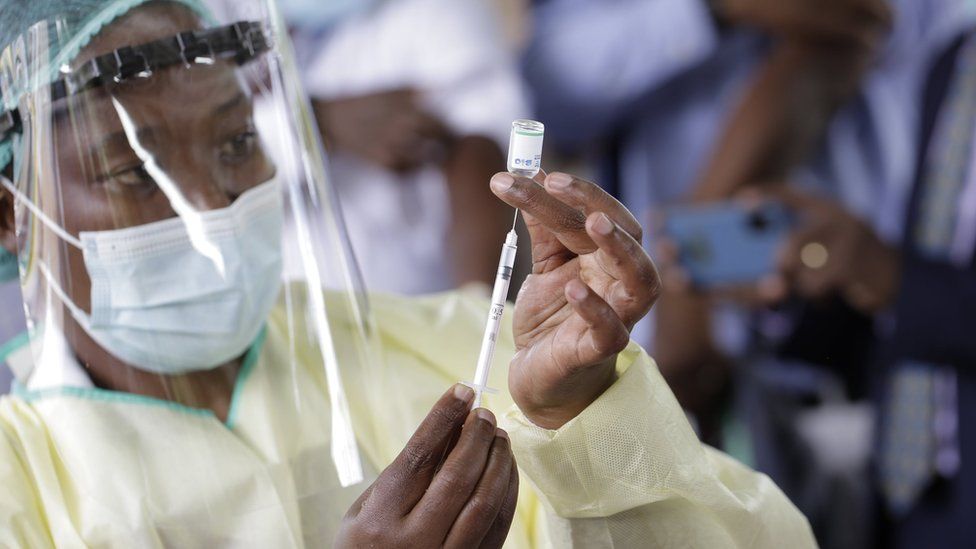ZIMBABWE has had over 20 000 new Covid-19 infections in the past fortnight. An average of 4 000 new infections have been recorded daily since Monday as the fourth wave of the pandemic ravages the country.
With the new Omicron variant, debate has emerged in the country on whether or not the government should introduce a hard lockdown to contain the spread of the lethal coronavirus.
The Daily News on Sunday Political Editor Mugove Tafirenyika last week sat down with the president of the Medical and Dental Private Practitioners of Zimbabwe Association, an inclusive body of medical practitioners in private practice, Johannes Marisa, to discuss the Covid-19 scourge in the country.
Below are the excerpts of the interview.
Q: What is your overview of the health system in the country and how do you evaluate it?
A: We have private and public health sectors. Let me start with the private sector. It is quite solid. It stood firm, stood tall during Covid-19 attacks as you know. We have managed to collaborate with our public health practitioners to contain this Covid-19 pandemic during all the three phases that we went through.
Then we have the public health system which constitutes government, council clinics and hospitals. There are challenges that are there of course. We have problems emanating from brain drain as you know there is a bit of disgruntlement, as they complain of poor remuneration and poor working conditions.
Nevertheless, we still have people going to work, we still have some dedicated staff doing their best to save the nation, but in general we can say the public health institution is not up to standard at the moment. It’s trying, but not as much as we expect it to be because of what I said earlier.
This is aggravated by the economic situation on the ground that is not quite favourable to many, so we can say there is under-staffing and poor working conditions.
There is also maladministration, corruption, nepotism and favouritism, all these factors actually blow the government institutions down.
Q: Talking about the private sector, there are concerns that given the economic situation in the country, like you highlighted, not too many people can afford private sector prices.
A: We have actually noted that there are complaints that the private sector is quite expensive, but people should realise that there are so many factors that drive prices up.
Prices of commodities and services can come from a lot of factors, for example during the last Covid-19 attack, people were complaining that the private sector was overcharging, but the end user does not realise that there are so many items or inputs that are needed for health service deliveries.
We have quite expensive commodities, oxygen being number one. There are patients who would require up to eight to 10 cylinders per day and the cost of that tank is too expensive. Very few people would afford the oxygen without talking of the risk, admissions and drugs that are used.
The issue is that there is no one who is subsidising the private sector in our country. Even donor organisations snub the private sector, they can only cry foul when their members are admitted into the private sector during the pandemic like Covid-19, but when we ask for assistance in whatever form, be it donation, capital to start medical business or to resuscitate falling clinics or hospitals or surgeries, no one comes to our rescue.
Those who are managing to access funds from financial institutions meet exorbitant and unbearable interest rates that actually become drawbacks in accessing funds by the private players.
These are ills that have to be addressed probably at national level.
There should be subsidies for the private sector and have cheap loans that can be accessed. No one wants to run a business at a loss. High costs are not confined to the private sector, but it cuts across all sectors.
Q: We are seeing Covid-19 new infections increasing. We also now have the new Omicron variant. What do you think needs to be done to contain the pandemic?
A: I was looking at the figures and I noted with great concern that in July we took almost three weeks to reach 1 000 cases per day. Now it took less than five days from the start of the fourth wave to reach the 1 000 mark and all this is happening in the midst of complacency.
Complacency is the most problematic thing that we are having at the moment. People are just walking in the street without thinking that Covid-19 has begun to wreak havoc in the communities.
We noted with great concern that masking up has been abandoned by a lot of people and social distancing has been forgotten, hand washing and all Covid-19 WHO guidelines have been forgotten by many people.
This is not good and what I think should be done is to introduce strict public health measures that are adhered to and everyone should abide by those measures.
Masking up, social, distancing and banning of public gathering at the moment should be done. The rate at which we are moving is alarming. A few days ago we were below 1 000 and now we are above 4 000 cases daily.
Q: The government has already said it is not considering a hard lockdown citing the issue of the economy. What are your views on the issue of introducing a total lockdown?
A: I understand what the government is saying, but what I foresee is that the situation will force the government to introduce it. Given that the cases will continue to skyrocket with increased mortality and admission then it means that you have to contain the virus.
Failure to contain the virus will drain more resources than what we were going to lose during the lockdown. The most important resource in any country is human capital, you will not go anywhere if you continue to lose people’s lives.
Health and development are symbiotic hybrid of each other and you cannot develop a nation without healthy people, so if this virus continues to torment people with cases and death increasing, I foresee in no time the government considering a hard lockdown as a matter of emergency.
For now, we are still watching the numbers, we are still watching the number of deaths and if the number of deaths increases, we will surely go for a hard lockdown.
When the third wave ended in the UK, they said they would not consider any other lockdown, but now they are the same people that are considering a territorial lockdown, that is Covid-19 for you.
We cannot say we must not put lockdown measures like what happened in Brazil, and then you lose half a million people. Losing 50 000 or 60 000 people in Zimbabwe will be a disaster, so we cannot risk people’s lives because we are against lockdown.
Q: Talking about the numbers of positive cases, do you think they are actually representative of what is happening on the ground?
A: The challenge is that we are not doing as much testing as expected. Even when we see patients in the private sector, we have challenges because they complain about high PCR charges. They cost from US$50 to US$70 and very few people can afford this. You can see people with all Covid-19 symptoms, but cannot afford to be tested.
It is my appeal to the government that through councils they can set up Covid-19 testing centres across the country. The data that we collect is actually biased because we are not testing people who deserve to be tested.
Q: It has been said vaccination probably will be the panacea to these problems and the government is targeting to reach herd immunity and we have only about four million who have been vaccinated so far, what’s your view?
A: If you look at the vaccination complacency that was already there before this latest attack, it was surprising, is something that is unimaginable.
A lot of people snubbed the vaccination process and by doing so it was difficult to reach herd immunity. There is a lot of misinformation about vaccines, with a lot of conspiracy theories, which is bad. There is false information on social media. We are going nowhere as a nation.
Q: What should be done on the issue of encouraging people to get vaccination?
A: Information from content creators should not override the government voice. When we have that imbalance, it means we are not doing enough to disseminate as much information as possible.
What is needed is that we need community leaders. The government should make use of community leaders, make use of mass media houses, agents in the community that deliver the vaccination word. If we become silent about vaccination and not serious at national level about vaccination then people will think it is something not relevant.
We need to make sure, like what Israel did. In Israel, you cannot be considered vaccinated if you do not receive three doses of the vaccine. Almost 70 percent of the population has been vaccinated.
I see it as a good move to have mandatory vaccination. In our situation, the government ordered a lot of doses that will expire soon if people are not vaccinated and that is taxpayers money that is being used and we are sitting on something that will save the nation. But when the same people become sick, they run around complaining about the lack of drugs in hospitals and the medical health delivery system.




